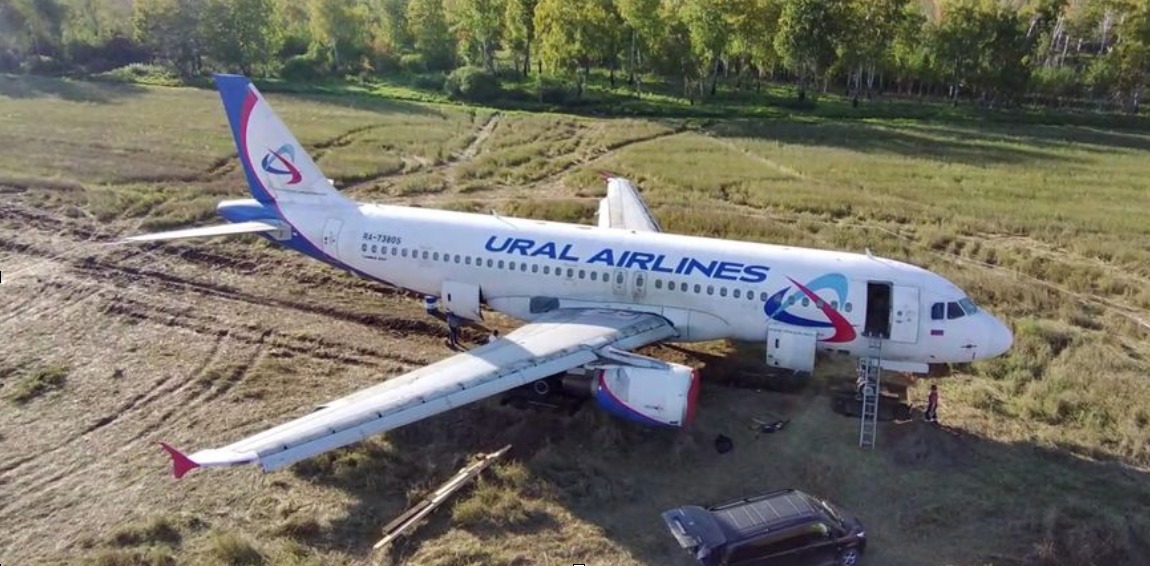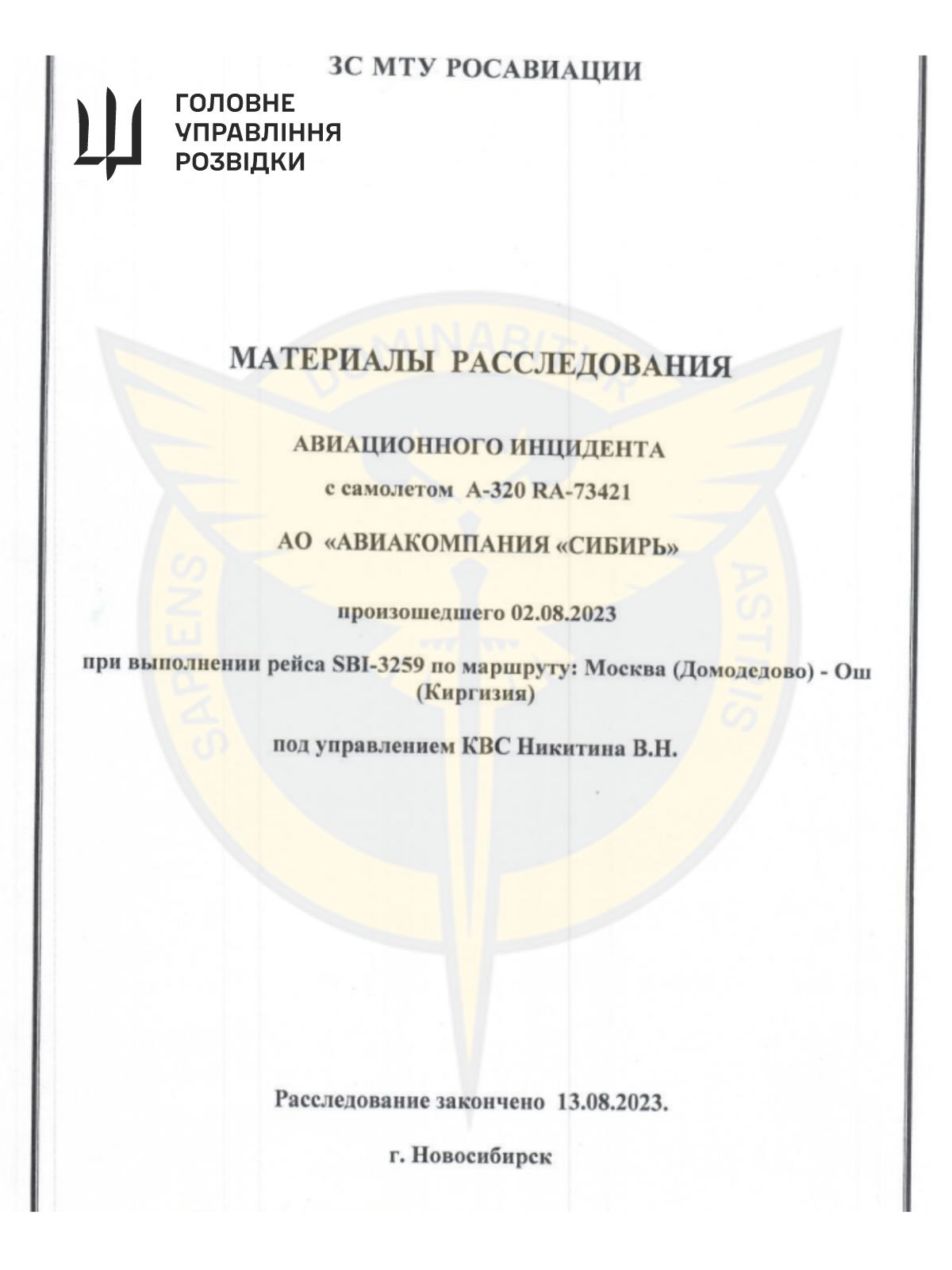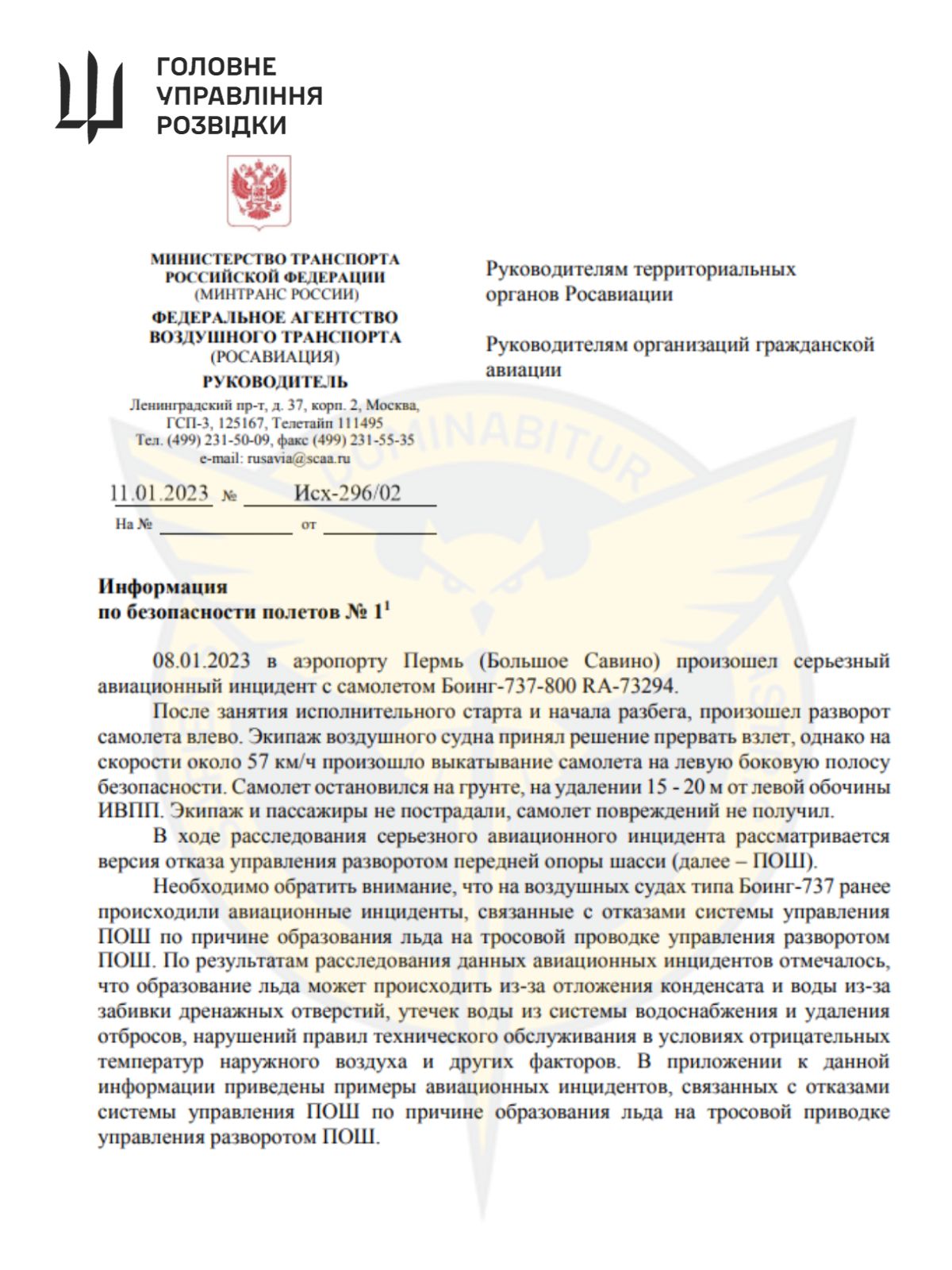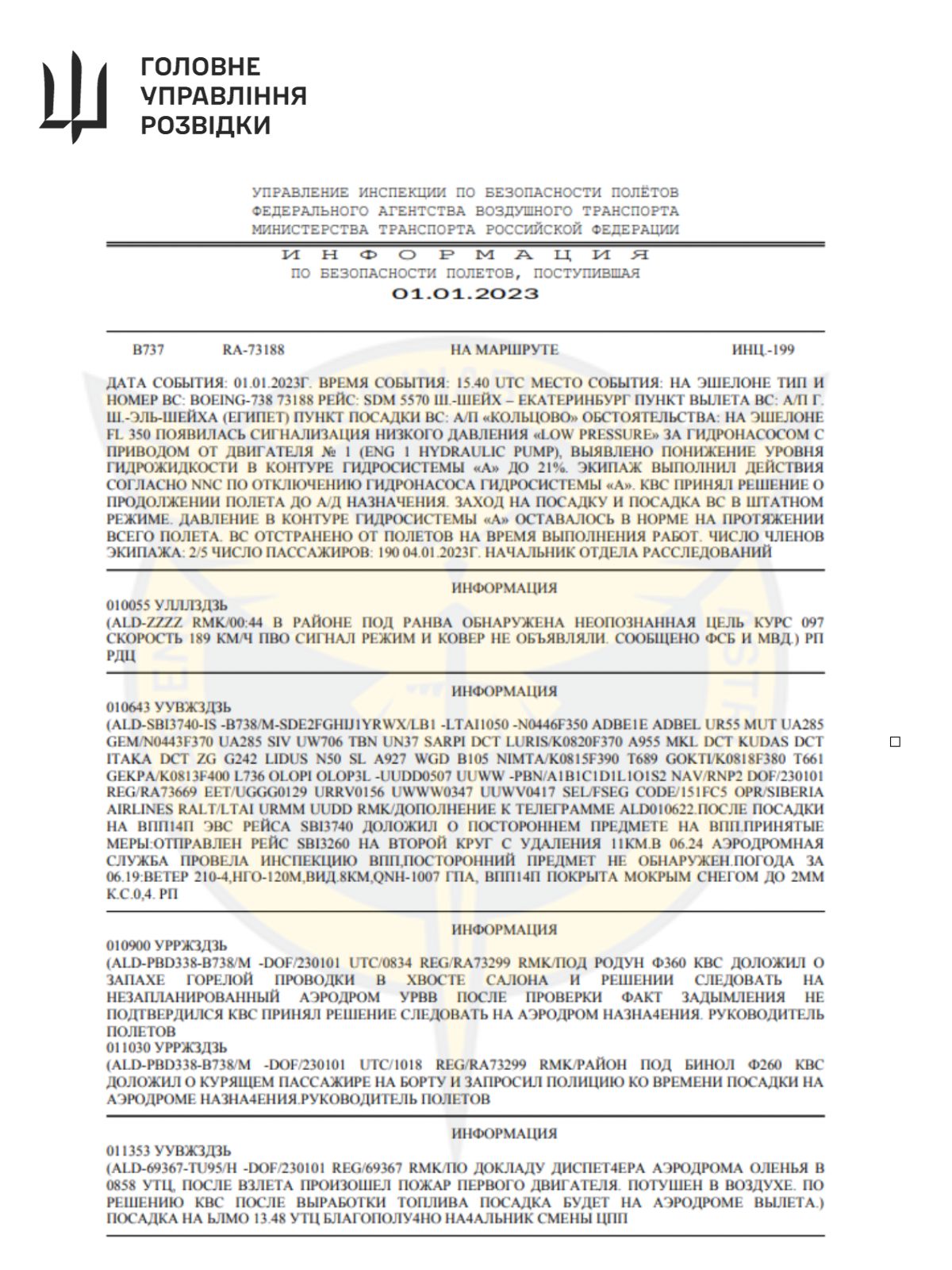 The Defence Intelligence of Ukraine informs that as a result of a successful complex special operation in cyberspace, a large volume of confidential documents of the structural subdivision of the Russian Ministry of Transport - the Federal Air Transport Agency (Rosaviatsia) - is now acquired.
The Defence Intelligence of Ukraine informs that as a result of a successful complex special operation in cyberspace, a large volume of confidential documents of the structural subdivision of the Russian Ministry of Transport - the Federal Air Transport Agency (Rosaviatsia) - is now acquired.
Above mentioned agency is responsible for flight safety and records all cases of emergency during operation of Russian aviation.
The data obtained as a result of hacking and penetration of enemy information systems includes a list of daily reports of Rosaviatsiya for the entire Russian Federation for more than a year and a half.
Their analysis shows that the civil aviation sector of terrorist Russia is on the verge of collapse.
Just a few vivid documentary evidents :
- In January 2023, 185 accidents were recorded in Russian civil aviation. About a third of them were classified as incidents of varying levels of danger. The leader here was the Russian short-haul aircraft "dry superjet" - 34 emergency cases.
- In the first 9 months of 2023, 150 cases of aircraft malfunctions were recorded in Russia. In the same period in 2022, 50 such incidents were recorded. This means that the safety hazard of flying in Russia has tripled.
- Engines and landing gear, as well as other important elements such as hydraulic systems, flaps and software, remain the most critical issues in Russian aviation.
- The aggressor state of Russia faces serious challenges in maintaining heavily logged aircraft. Due to the lack of capacity and specialists, Moscow is trying to redirect aircraft maintenance to Iran, where the relevant work is carried out " handicraft" - without appropriate certification.
- As of March 2022, Russia had about 820 foreign-made civilian aircraft. And while at that time only up to 10% of them had undergone uncertified maintenance with the use of non-authentic spare parts, today almost 70% of the fleet has been put through such "service".
- The acute shortage of spare parts has led to the so-called "aviation cannibalism" in Russia, when some aircraft are dismantled to repair others. According to the available data, by mid-2023, more than 35% of aircraft in Russia were "donated".
- Most Soviet An-2 aircraft are currently unable to take off from the ground because their engines were manufactured in Poland, but their supply has been stopped due to sanctions.
- In January 2023 alone, 19 different failures were recorded among the 220 Airbus aircraft in Russia. In particular, 17 cases of smoke were recorded in 9 aircraft used by Aeroflot.
- 33 technical failures of various aircraft systems have been recorded out of 230 Boeing aircraft operated in Russia.
10.Every seventh Brazilian Embraer failed to withstand the conditions of operation in Russia, and there are 21 of them in Russia's fleet.
In September 2022, the International Civil Aviation Organisation (ICAO) marked Russia as red, along with Liberia and Bhutan, which indicates an extremely high risk to flight safety.
An analysis of the character of aviation incidents from the documents obtained indicates that a number of failures, especially those related to engines, landing gear and wing mechanics, are of a systemic type. The trend indicates that the civil aviation sector in Russia is in a zone of serious turbulence with a high risk of a steep dive.
This reality is a direct consequence of the sanctions, the most painful of which for the aggressor state of Russia were the imposed ban on the supply of aircraft and spare parts;
- rejection of software updates;
- detention of Russian aircraft abroad;
- restriction of access to meteorological information for air navigation.
Today, Moscow is trying to hide the endless pile of problems with civil aviation, endangering its residents, by all means.


